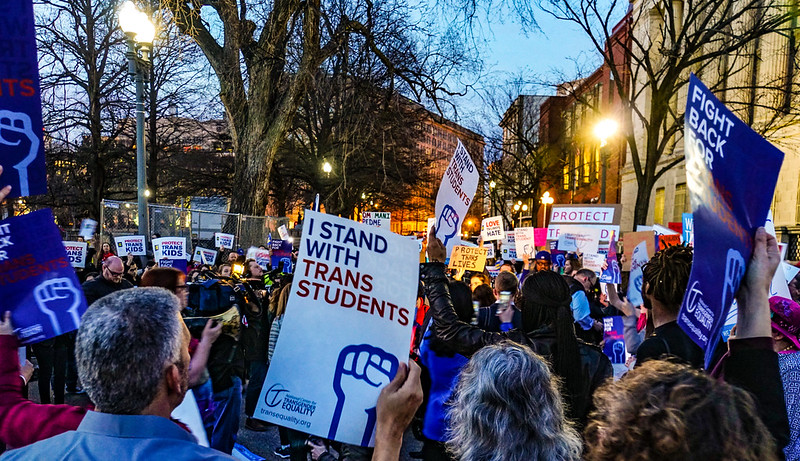
Earlier this month, the Biden administration finalized new Title IX rules – 1,577 pages long, if you want to read the whole document – that will prohibit schools from discriminating against transgender students, protect pregnant people, and amend the way sexual assault and harassment cases are adjudicated on campuses. These changes are just the latest development in a history of back and forth over how Title IX is interpreted and enforced.
The history of Title IX and “sex”
Passed in 1972, Title IX prohibits sex discrimination in schools that receive federal funding. What “sex” means, however, has been contested over the years.
In 2011, the Obama administration issued a “Dear Colleague” letter on Title IX that interpreted “sex” to include gender identity and sexual orientation. The Supreme Court used this same definition of sex in the 2019 ruling in Bostock v. Clayton County, which concerned sex discrimination in the workplace, under Title VII of the 1964 Civil Rights Act.
The Trump administration reversed the Obama rule in 2017 and mandated that the word “sex” should be interpreted as biology and sex assigned at birth.
Now, in 2024, the new Biden administration rules once again change how “sex” is understood, returning to the Obama guidelines.
What the new rules will do
Under the new rules, a school district that bans transgender students from using bathrooms or locker rooms that correspond to their gender identity, that fails to address bullying based on gender or sexuality, or that refuses to use a student’s pronouns would be in violation of Title IX.
Additionally, the new rules protect students and workers by prohibiting discrimination on the basis of pregnancy, which includes provisions related to lactation, abortion, and childbirth.
They also outline new procedures for how colleges adjudicate sexual assault and harassment cases. Whereas Trump-era guidelines stipulated that there must be a live hearing to allow the accused party to defend themselves and conduct a cross-examination of the accuser, the new rules allow for separate meetings. Proponents of the new rule argue that this will protect survivors by not forcing them to face perpetrators, which is often emotionally damaging and can be a reason why people choose to not pursue sexual assault claims.
What scholarship says about defining sex
There has been no shortage of scholarship exploring the implications of these changing meanings of sex, particularly for transgender and gender-nonconforming people. Shayna Medley argues that definitions of sex like those adopted by the Trump administration are little more than a way to authorize invasive sex testing that overwhelmingly targets trans and intersex people. Sex testing often relies on the assumption that there is a relationship between testosterone and athletic dominance, although researchers across numerous fields have debunked these claims.
Others have pointed to the ways that sex testing disproportionately targets Black and Asian athletes, like South Africa’s Caster Semenya and India’s Dutee Chand. My own research reveals that this is because white girls and women are perceived to need additional protection to secure fairness in competition.
Linking sex and gender identity might be one way to combat these trends. However, the new Biden guidelines do not cover sports.
What the new rules won’t do
While the revised definition of sex in Title IX will ultimately benefit trans youth in schools, trans athletes are left out of these new guidelines. Trans girls are currently banned from athletic competitions in 24 states. The Biden administration reports that a proposed rule to guarantee access to some athletic competitions is pending, but will be delayed to avoid becoming ensnared in election season politics, during which anti-LGBTQ legislation and discourse has increased.



